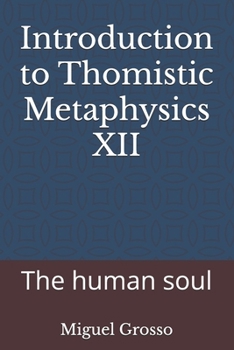Introduction to Thomistic Metaphysics XII: The human soul
The human soul occupies the lowest rank among separated substances, situated within an intermediate realm among higher corporeal entities and lower angelic essences. This distinction arises not from its corporeal nature, but rather from the inherent demand of its specific essence for corporeal embodiment. Far from being confined by the body, the soul assumes the role of its substantiall form. Consequently, any contemplation of the soul necessitates a parallel consideration of the body, to which it imparts vitality. In its journey towards fulfillment, the soul relies heavily upon the corporeal frame. It relies on bodily organs to execute the manifold vegetative, sensitive, and intellectual functions intrinsic to human existence. However, there exists a singular operation exempt from this reliance: the comprehension of beings' essence, commonly referred to as "intellection." This distinct cognitive function, along with other related activities such as the formulation of intelligible species and the elaboration of universal concepts, operates independently of bodily organs, demonstrating the soul's self-sufficiency. As an incorporeal substance, the soul maintains its integrity separate from the body. Incorruptible and endowed with enduring cognitive faculties, it retains the capacity for understanding and knowledge even after physical separation. When the body no longer provides the necessary conditions for the soul's operations, the soul, as an autonomous form, disengages. At this juncture, the body, bereft of its vital essence, loses its designation, becoming a mere vestige. Comprising ten chapters, this work delves into various facets of the soul's nature and functions. Namely: 1-What is the soul? 2-The origin of the soul 3-The union of the soul and the body 4-The powers of the soul in general 5-The intellectual powers of the soul 6-The appetitive powers of the soul 7-Soul and free will 8-The soul and the knowledge of the material 9-The soul and the knowledge of the immaterial 10-Fundamental concepts about the soul. An Epilogue follows, characteristic of these volumes, based on questions and answers. And abundant Notes, mainly from the Summa Theologica and the Quaestiones disputatae de anima (On the soul).
Format:Paperback
Language:English
ISBN:B0BXZSCXKV
ISBN13:9798386884666
Release Date:March 2023
Publisher:Independently Published
Length:126 Pages
Weight:0.39 lbs.
Dimensions:0.3" x 6.0" x 9.0"
Related Subjects
PhilosophyCustomer Reviews
0 rating





